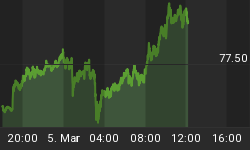The real estate market has rolled over hard thereby pushing many people into being upside down on their primary residence and/or rentals and vacation homes. I noticed several months ago that people started being more open about their issues with their real estate holdings, but I've also noticed many are not admitting to their problems. Are you ready to come out of the real estate closet?
Luke Mullins of the US News & World Report published: America's Most Underwater Housing Markets on March 19, 2010. The top five markets in the worst condition are as follows:
| Location | Estimated in the 4th quarter of 2009 |
| Las Vegas, NV | 81% are upside down. |
| Merced, CA | 64% are upside down. |
| Phoenix, AZ | 62% are upside down. |
| Orlando, FL | 58% are upside down. |
| Greeley, CO | 41% are upside down. |
Clearly, not everyone has dealt with their real estate issues. Now a lot are still gainfully employed and making payments, but too many are struggling to keep a house they can't afford, and whether they like it or not they are nothing more than a renter. That's not a bad thing, just reality.
What's interesting about this report is not that the top 4 areas are in the trouble zones of NV, CA, AZ, and Fl, but in the top 10 you see cities including Greeley, CO, Minneapolis/St. Paul, MN, Bend, OR, Memphis, and Cleveland. Clearly the real estate issue is spreading to other areas. The rest of the country is showing signs of catching up to the most over blown real estate bubble states.
A reader has emailed the following simple question:
Any personal thoughts on walking away from a condo underwater?
The above question is one I'm getting more and more these days. The above question is essentially 2 questions in one. There's the investment decision. And there's the legal question. The later is the first question that needs to be addressed, "absolutely first". I've seen too many people act first and ask questions later and it's not always that easy.
So, go see an attorney first, "ALWAYS". What you need to know from your attorney is the following:
-
SEEING THE ATTORNEY: What are the laws and regulations in your state that could impact you? There might be language in your loan documents you need to know.
There are issues as it relates to purchaser money loans and refinance loans, and whether or not those banks have recourse to you for any deficiency when the bank finally sells the home. AND, some financial institutions are becoming far more aggressive in seeking judgments on deficiencies, especially on higher income home owners. There might be other issues you need to know I have not covered. If you're going to do a short sale, you want your attorney to review those documents before you sign them.
I highly recommend you take your loan documents, your tax returns for a couple years, and your personal financial statement with you to your attorney. This data might help your attorney assess risks and implications for you.
-
INVESTMENT DECISION: Assuming the attorney is comfortable with your situation, and the risks are minimal, here are my thoughts on the investment side of the question. I still see real state as over priced.
I expect wage deflation to continue for a number of years, which will put downward pressure on real estate affordability, and thus should compress real estate values. If we get either higher state or federal taxes, or both, that will decrease net incomes, which also puts downward pressure on real estate affordability, and thus pressure on real estate values.
In a declining real estate market, the 3 real estate categories that usually go down the furthest are land, vacation homes, and condos. I can't foresee a condo that is upside down in any significant manner resolving itself via higher values at any time in the next several years. Many condos fore the most part are really a multifamily or apartment type unit. Thus, we should expect in a declining market that condos will re-price lower based off some reasonable multiple of its potential annual gross income. That number for most of America is still "significantly" lower, except for some of the most devastated areas.
If one executes the decision to walk away or short sale, then one should review when the ideal time is, and this too might be part of the strategy your attorney helps you with.
I know too many people who jump into this process with out talking to an attorney or strategizing a plan to optimize the situation.
I have noticed a great deal of people doing one of two things: They either let the payment go anticipating the foreclosure process and eventually getting kicked out by the bank. This process can take 12-18 months, and many are choosing not to make a payment and saving the money and living mortgage payment free including taxes and insurance during that time frame. On rental properties, many are not making payments while collecting rent the entire time and saving that money. Again, issues to discuss with your attorney.
The issue of walking away from a home via a short sale or foreclosure is a trend that has "many years" left to go, and I expect it to gain in acceptance and maybe become the norm as many lose their emotional attachment to their real estate, while opting for lower housing costs. Whether someone is forced into it by layoffs, or by a desire to not be maxed out in mortgage payments, everyone will realize the importance of cash flow. Net cash flow is really important to the personal balance sheet in the ability to save money and live within one's means.
START BY SEEING AN ATTORNEY FIRST!!!
Hope all is well.
















